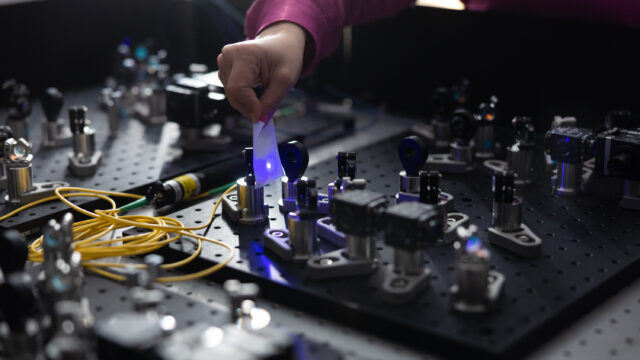
Quantum computing hardware
Our hardware teams are currently working on the development of a range of platform technologies including ion traps, superconducting circuits and cold atoms.
The NQCC’s research teams are working with partners in industry and academia to develop scalable quantum computing platforms and explore practical applications for quantum computers.
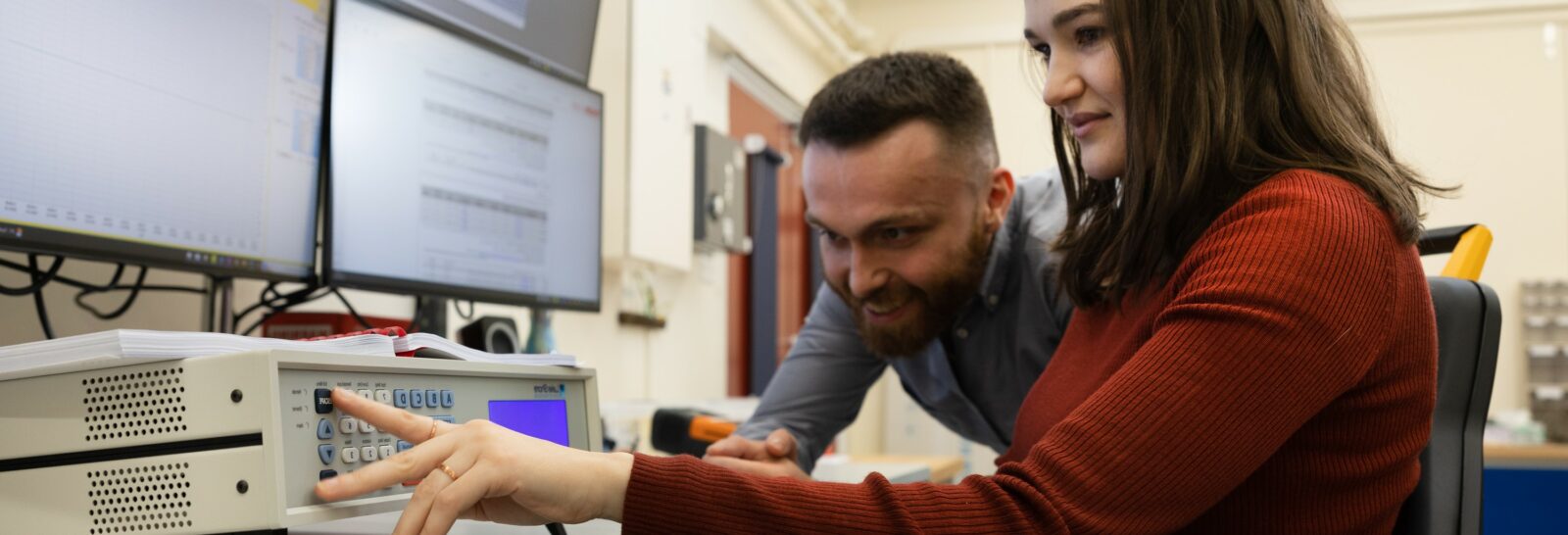
The work of our technical teams spans the full quantum computing stack, from the native hardware through to applications development. Our technology roadmap has a near-term focus on hardware architectures based on ion trap and superconducting qubits. We are actively collaborating with the research community to extend the range of platform technologies that we work on over time.
Our current technology programme is focused on establishing quantum computing testbeds. This will allow us to evaluate component technologies, understand system-level performance, and overcome the key engineering challenges involved in scaling quantum computing.

Our hardware teams are currently working on the development of a range of platform technologies including ion traps, superconducting circuits and cold atoms.
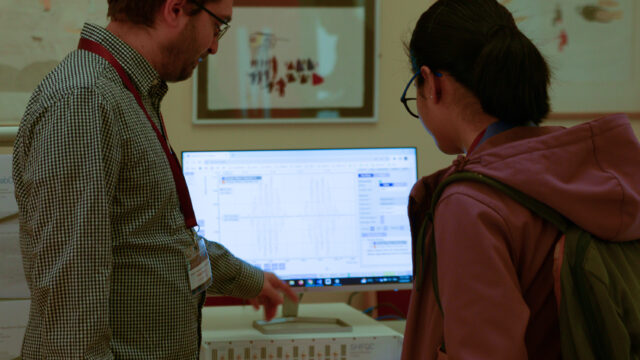
Our software team is developing control systems, middleware and user interfaces for integration across a range of hardware platforms and with third-party software solutions.
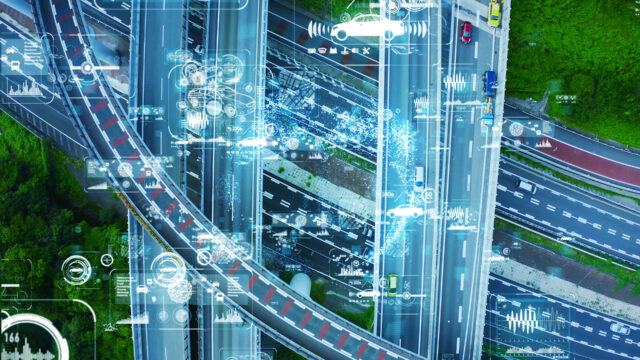
Our applications team works to develop and test use cases for quantum computing, by programming quantum processors and simulators to run quantum algorithms.
Trapped ions can be employed as qubits by using two electronic states of the charged atom. Their long-lived quantum states make it possible to create high-quality qubits that perform operations with world leading fidelities. With the potential for large numbers of identical qubits and all-to-all connectivity between them, trapped ions are one of the leading approaches to quantum computing.
The trapped ion quantum computing team aims to further the UK’s ecosystem through technology development and collaboration with academic and industry partners.
Internal projects are focused on technological progress including building modular systems, high-fidelity gate control, and scaling. Current work is focussed on two complementary platforms. Cryogenic surface traps for exploring high-fidelity microwave gates and a room temperature 3D microtrap for exploring different laser-driven qubit operations.
Our collaborative work covers a wide range of projects focussed on enabling technologies and supply chain development such as testing and validating trap types, miniaturisation of ion trap packaging, and remote entanglement.
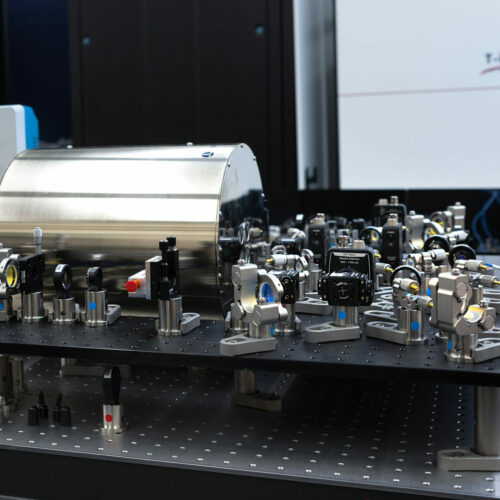
Superconducting quantum computing uses the quantum oscillator states of nanofabricated superconducting circuits to encode qubits. They are operated below 20 mK in a dilution refrigerator, controlled and read out by microwave frequency signals, and entangled by circuit coupling structures. Qubits, couplers, readout circuitry and signal lines are manufactured together on-chip to create multi-qubit systems.
The NQCC Superconducting Circuits Team develops superconducting quantum computing systems to build in-house expertise and perform the science and engineering research to scale them. The team operates a cryogenics lab with three dilution fridges, giving the ability to develop multiple systems with complementary design choices and uses.
We have built the capability to tune up and characterise single- and multi-qubit operations with tuneable transmon qubits and tuneable couplers. Additionally, we explore other qubit architectures, support activity on control systems and cryogenic wiring.
We collaborate with academic researchers and other national labs, directly and through joint PhD projects, on areas such as 3D integration and improved materials. Collaborative research projects with industry currently focus on evaluating novel readout methods such as optical transduction or digital superconducting electronics.
With the initial internal programme established, we are also beginning to survey the field more broadly to understand current state-of-the-art systems, and to look ahead at challenges and approaches to scale to systems capable of millions of coherent quantum operations and beyond.
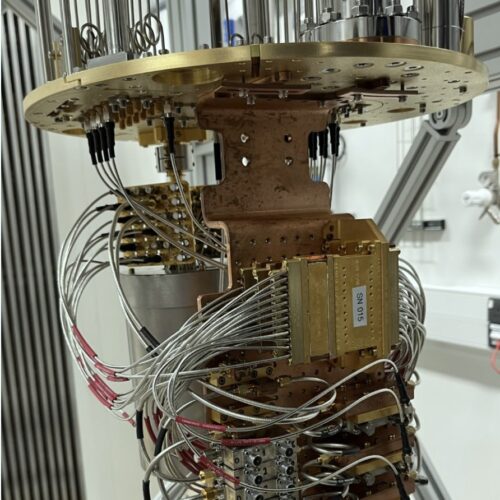
Neutral atom quantum computing is an emerging platform that leverages laser-cooled atoms trapped in programmable optical potentials. Qubits are encoded in internal energy levels of the atoms, and entangling operations are achieved via Rydberg interactions – strong, controllable dipolar interactions that occur when the atoms are promoted to highly excited atomic states.
The NQCC’s tweezer array team works to advance this platform which offers a promising path to scalability through dense qubit packing, dynamically reconfigurable connectivity, and highly parallel gate operations & control multiplexing. Optical tweezers allow for dynamic rearrangement of qubits mid-circuit, enabling defect-free arrays and flexible circuit layouts. The use of atomic species can enable fast, simple readout schemes.
The team at NQCC are building toward modular, high-fidelity tweezer array systems capable of trapping and manipulating thousands of neutral atoms. Initial milestones include establishing robust single-atom loading and imaging, characterising coherence times and gate fidelities, and implementing fast, parallel entangling gates using Rydberg excitation.
The team is also involved in road-mapping future architectures that can scale to millions of coherent operations, including advanced optical and vacuum designs, error correcting protocols and control system improvements for improved scalability and control. Collaborations with academic and industrial partners support our progress on laser systems, atom sources, vacuum technologies, and control electronics.
As facilities expand, our roadmap includes development of scalable, error corrected hardware, benchmarking tools, and application-layer integration through collaboration with the software and applications teams. We are committed to growing the UK capability in neutral atom quantum computing through workshops, training, technology development, open research, and supply chain engagement.
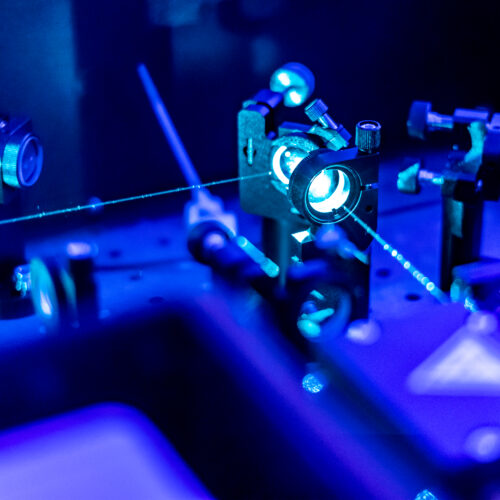
The NQCC HPC/IT team enables NQCC activities through the provision of secure but flexible networks, Quantum Computing as a Service (QCaaS), high performance computing (HPC), and specialised systems and services.
Secure but flexible networks allow NQCC to deploy networks that meet a range of use cases including supporting the research teams and testbed providers.
QCaaS facilitates access to cloud-connected quantum computers for UK researchers. Access is available through the Quantum Computing Access Programme.
On-premise HPC systems allow simulation of quantum computers for algorithm development, support the execution of hybrid algorithms and provide hardware resources for error correction.
Multi-petabyte scale centralised storage systems allow data sharing of large data sets within NQCC and fast storage for the HPC systems.

The software and control systems group maintains and develops software, ranging from hardware control through to providing quantum programming environments for our application engineers.
Our current focus is on building real-time quantum computer control for the onsite hardware teams, from data collection and monitoring to qubit control, and on establishing quantum emulation on the in-house high performance compute (HPC) cluster.
Our core software provides a flexible architecture that allows components to be selected at runtime to form application-specific toolchains. We bring together a wide range of technologies, including cross-platform user interfaces and extension points to integrate with third-party tools and web-based quantum systems.
Our agile process encourages hands-on experience across the full quantum stack, including hybrid quantum-classical algorithms and the transpilation and optimisation of quantum programming languages.

The quantum applications team provides technical expertise and support to help identify, test and validate quantum computing use cases across various industry sectors. Our applications engineers work with innovation specialists to translate challenges within specific industries into technical requirements, which then guide their development of applications solutions. They are also involved in collaborative R&D projects with external partners through the NQCC’s user engagement programme, SparQ.
Our applications engineers also work with the software and control systems team to define and develop the higher layers of the quantum computing stack.
Key areas of activity for the quantum applications team include:
